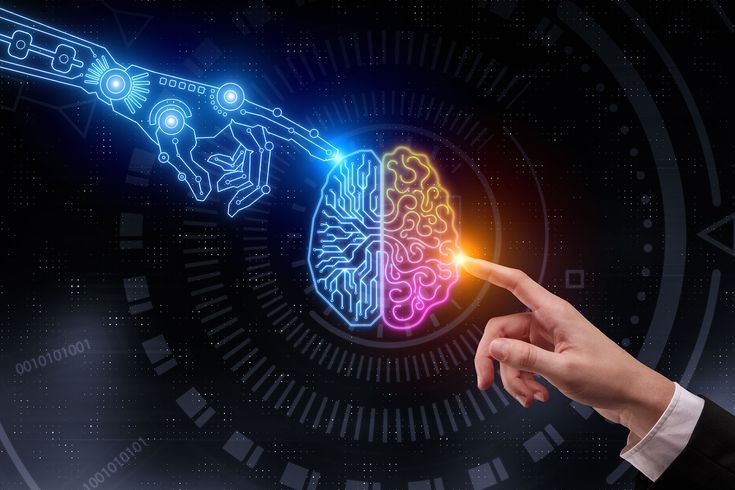Artificial Intelligence (AI) has been a transformative force over the past decade, reshaping industries, driving innovation, and altering the way we interact with technology. As we look to the future, the question arises: what will AI’s role be in the coming years? Will it continue to evolve at its current pace, or are there new frontiers waiting to be explored? This blog delves into the potential future of AI, examining key trends, challenges, and possibilities that could define the next era of this powerful technology.
1. AI in Everyday Life: Ubiquity and Integration
As AI continues to mature, it is likely to become an even more integral part of our daily lives. From smart home devices that anticipate our needs to personalized healthcare solutions, AI will enhance convenience and efficiency. Imagine an AI assistant that not only schedules your day but also provides real-time health monitoring, dietary advice, and mental wellness support, all tailored specifically to you.
The integration of AI into everyday objects, known as the Internet of Things (IoT), will further expand its presence. Homes, cities, and workplaces will become smarter, with AI optimizing energy consumption, traffic flow, and resource management. The result? A more connected and intelligent world where AI quietly works behind the scenes to improve quality of life.
2. Advancements in Healthcare: Precision and Personalization
Healthcare is one of the sectors where AI’s impact is already being felt, and its future potential is enormous. AI-driven diagnostics, personalized treatment plans, and drug discovery are just the beginning. In the future, AI could revolutionize healthcare by enabling precision medicine, where treatments are customized to an individual’s genetic makeup, lifestyle, and environment.
Moreover, AI will likely play a crucial role in managing global health crises. By analyzing vast amounts of data, AI can predict outbreaks, optimize resource allocation, and develop vaccines more rapidly. The potential for AI to save lives and improve health outcomes is immense, making it a key player in the future of medicine.
3. AI and the Workforce: Collaboration and Transformation
The relationship between AI and the workforce is complex, with debates often centered around the fear of job displacement. However, the future of AI in the workplace may be more about collaboration than competition. AI will augment human capabilities, taking over repetitive, mundane tasks, and allowing humans to focus on more creative, strategic, and interpersonal roles.
Industries such as manufacturing, finance, and customer service will see AI-driven automation increase efficiency and reduce costs. At the same time, new job opportunities will emerge in AI development, ethics, and oversight, creating a demand for skills in AI literacy and interdisciplinary collaboration.
4. Ethics and Regulation: Navigating the Challenges
As AI becomes more powerful and pervasive, ethical considerations will take center stage. Issues such as data privacy, bias in AI algorithms, and the potential for autonomous systems to make decisions without human oversight will need to be addressed. The future will likely see the development of robust frameworks for AI ethics, along with increased regulation to ensure that AI is used responsibly and for the benefit of all.
Global cooperation will be essential in setting standards and policies that guide AI development. The creation of international agreements on AI ethics, similar to those in areas like climate change, could help ensure that AI advances align with human values and societal goals.
5. AI and Creativity: The New Frontier
One of the most exciting prospects for AI lies in the realm of creativity. AI-generated art, music, and literature are already gaining attention, and the future could see AI collaborating with humans in new and unexpected ways. AI could become a tool for amplifying human creativity, providing inspiration, generating ideas, and even co-creating alongside artists, writers, and musicians.
This fusion of human and machine creativity could lead to entirely new forms of expression and innovation, blurring the lines between what is human-made and what is machine-generated. As AI continues to learn and evolve, it could push the boundaries of creativity, opening up possibilities that were previously unimaginable.
6. The Path Ahead: Collaboration and Innovation
The future of AI is not predetermined, and its trajectory will be shaped by the choices we make today. Collaboration between technologists, policymakers, and the public will be crucial in steering AI development toward positive outcomes. Innovation will continue to drive AI forward, but it will need to be guided by a commitment to ethical principles and a vision of a future where AI enhances rather than diminishes the human experience.
As we look ahead, it is clear that AI will play a central role in shaping the future. Whether in healthcare, the workplace, or the arts, AI has the potential to transform our world in ways we are only beginning to understand. The challenge lies in harnessing this potential responsibly, ensuring that AI serves as a tool for progress and prosperity for all.
Conclusion
The future of AI is bright, full of promise, and brimming with potential. As we navigate this new era, it is up to us to ensure that AI is developed and deployed in ways that benefit society as a whole. By embracing innovation, fostering collaboration, and addressing ethical concerns, we can unlock the full potential of AI and create a future where technology and humanity thrive together.





